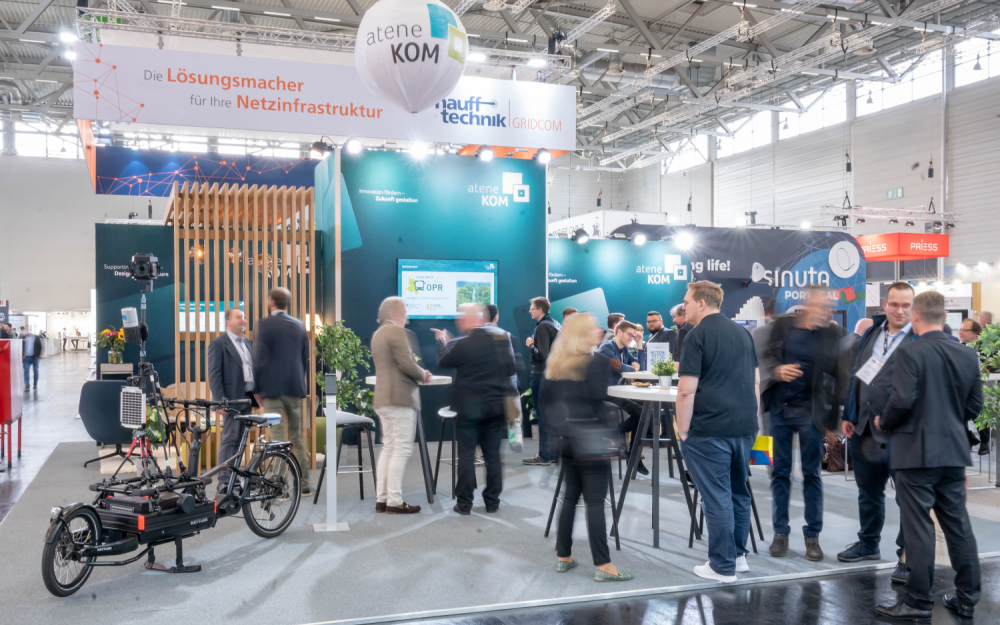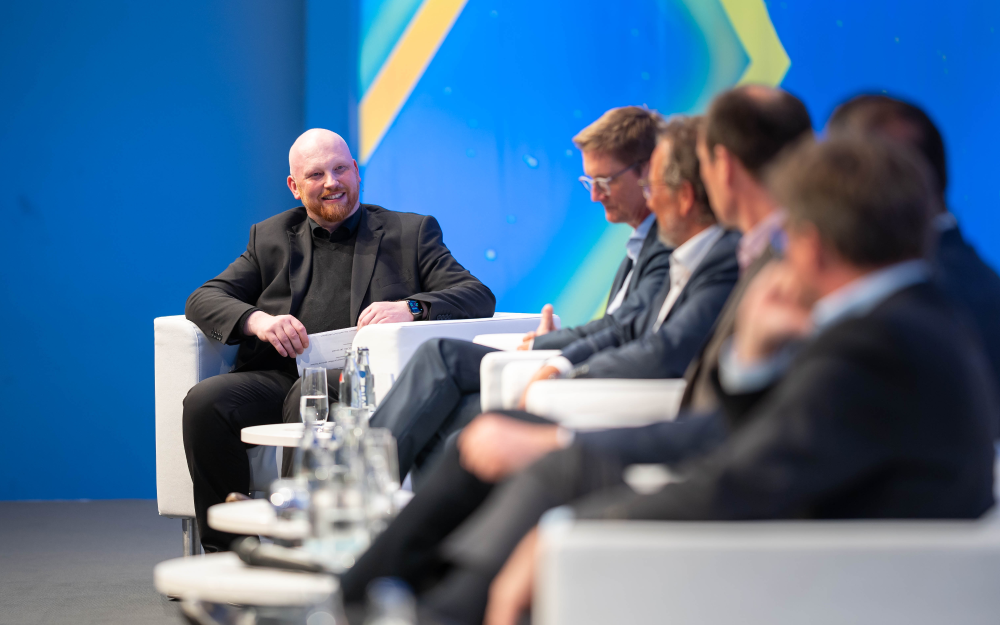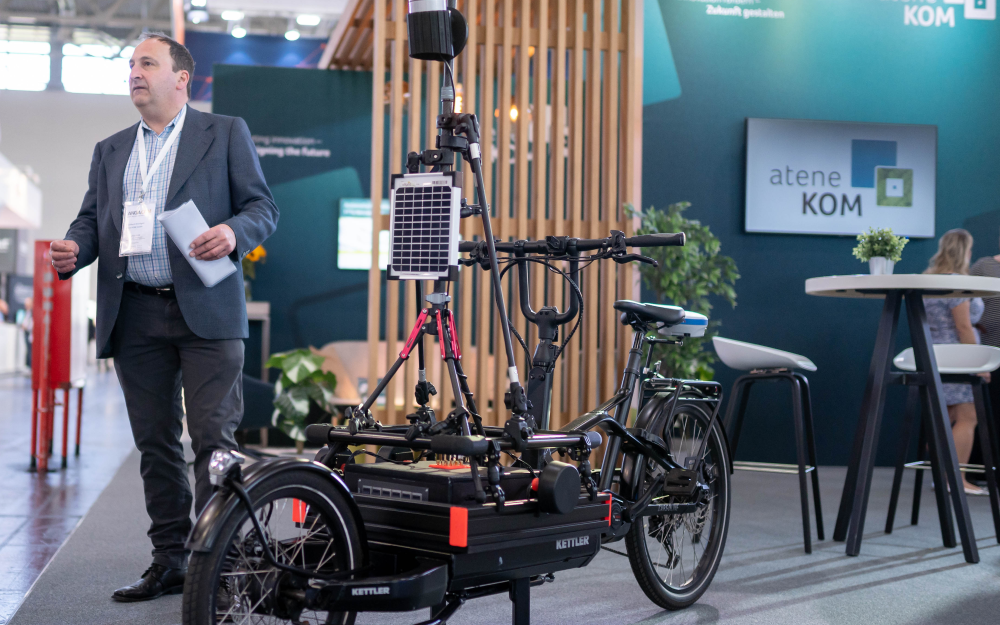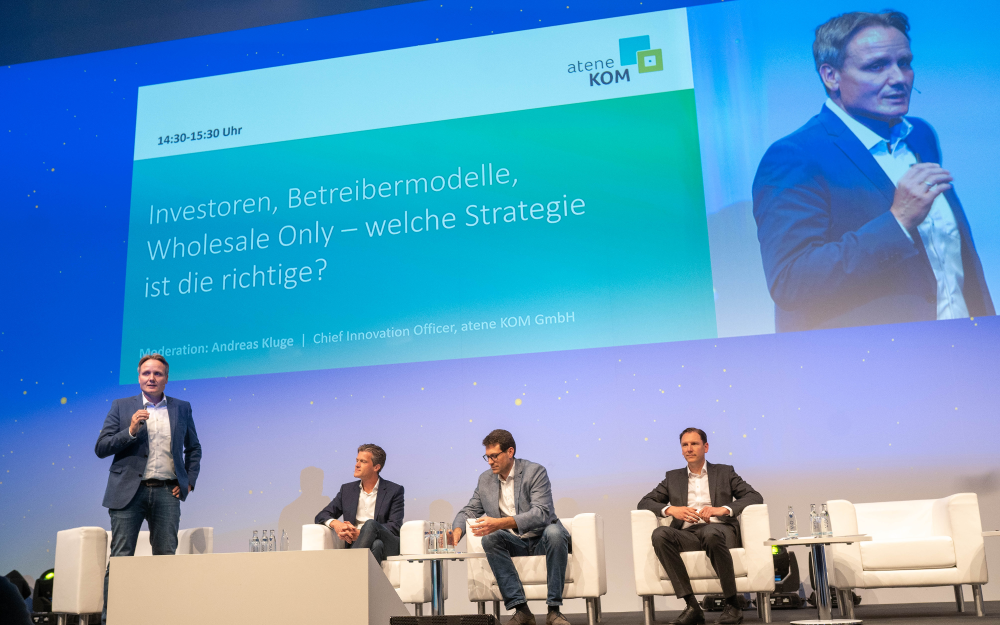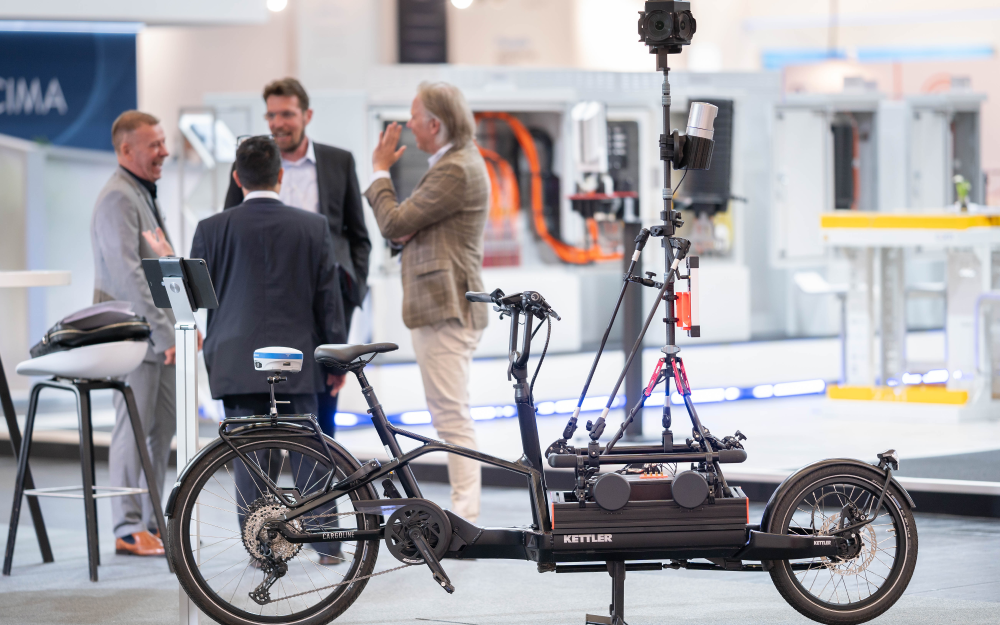For three days, aconium was once again involved in the varied programme at ANGA COM, Europe’s largest congress trade fair for broadband, television and online, according to the trade fair organiser, and was represented with an exhibition stand. ANGA COM took place from May 23 to 25 in Cologne and reported 470 exhibitors from 35 countries and around 22,000 visitors from 80 countries.
At our stand in Hall 8, the numerous trade fair visitors were able to take away information about the wide range of services offered by aconium GmbH, hold interesting discussions and receive advice from our experts. Grant recipients and municipal representatives took the opportunity to find out more about gigabit funding.
In addition to the exhibition area, ANGA COM offered an extensive congress programme with a total of 61 panels and over 240 speakers. As part of the many discussion events, aconium Managing Director Tim Brauckmüller moderated the well-attended and well-staffed panel “Fiber Optic Expansion: Cooperation Models and Open Access”. Ulrich Hoffmann, CEO Plusnet, Stefan Holighaus, Member of the Management Board DNS:NET, Arne Mietzner, Managing Director wilhelm.tel, Ruben Queimano, Chief Commercial Officer Deutsche Glasfaser and Dr. Sören Trebst, CEO 1&1 Versatel, provided interesting insights and outlooks.
An absolute highlight was the aconium broadband panel “Broadband for municipalities” on the third day of the trade fair, the Fibre Optics & Municipalities theme day. Paul Kempf, Managing Director of Zweckverband Breitbandversorgung Landkreis Lörrach, Christoph Meurer, Managing Director of Meridiam Glasfaser GmbH & Co KG and Ralf Gresselmeyer, CEO of GlasfaserPlus, took part in the panel. The discussion was moderated by Andreas Kluge, CIO of aconium GmbH. The numerous visitors to the panel discussion heard first-hand about the advantages and disadvantages of various expansion and operating models. Paul Kempf gave an exciting insight into the fibre optic expansion activities of the district of Lörrach. According to Kempf, the entire Black Forest can be covered by 2024 thanks to self-funded and subsidised expansion. The district is in charge of this, as agreed by all parties involved. What is also interesting in Lörrach is that the district is thinking digitalisation in its entirety and has also set up its own data center, for example.
Ralf Gresselmeyer explained the GlasfaserPlus model. The company relies on long-term cooperation with local authorities, Deutsche Telekom and the investor IFM, an Australian pension fund, for the gigabit expansion. In the wholesale-only model, GlasfaserPlus builds the infrastructure and operates the networks. “We are already building fibre optic networks in 150 municipalities. Our goal is to supply four million households in Germany with fibre optics in the next few years.”
Christoph Meurer highlighted the opportunities for municipalities to cooperate with Meridiam. Partnerships are then entered into for the construction of municipal infrastructures with municipal participation. The focus is on creating digital infrastructures from which the municipalities can then benefit over a long-term period.
However, despite the positive examples, connecting over 10,000 municipalities to the network remains a challenge for fibre optic expansion. In order to achieve this, digitalisation and standardisation are becoming increasingly important for companies and municipalities. The panelists agreed that this is the only way to master the complexity of the task now and in the future. There was also a consensus that, among other things, it is advantageous to pre-inspect the planned installation routes, not only to record the surface condition, but also to be well prepared for the challenges during the expansion. The experts also attach great importance to documentation during and after the construction of the gigabit network.
After all, says Paul Kempf, “the expansion is a generational task. The networks will be in operation for 100 years or more. Without close cooperation with the municipalities, the establishment of gigabit networks will not work successfully.” Ralf Gresselmeyer made another important point at the end: “We need to emphasise the positive aspects of digitalisation. People often argue and report on the disadvantages and problems. But the advantages of digitalisation outweigh the disadvantages.”
The opportunity to do so will arise next year at the latest, when ANGA COM takes place again in Cologne from May 14 to 16 and aconium GmbH will be there again.

